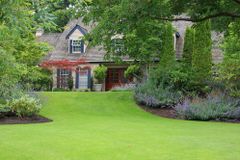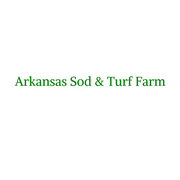Should You Choose St. Augustine or Bermuda Grass Sod for Your Yard?

Beautiful lawns are points of pride for many homeowners. For a superior green space, you need to be savvy about which type of sod to lay across the land. Two leading options include St. Augustine and Bermuda grass sod. Here are three variables you can use to assess the difference.
Bermuda Grass Sod or St. Augustine Sod?
Water Needs
One factor to consider is the amount of rain you get in the area and any irrigation apparatus you have in place. If you expect consistent rains and can add a sprinkler system, then St. Augustine is a viable option, since it requires a steady flow of water. Bermuda grass sod doesn’t need as much, so it is easier to maintain in a dryer area.
General Maintenance
 It can take a little more work to manage a lawn with St. Augustine sod, which has a higher growth rate. For instance, you should expect regular mowing chores. When it comes to Bermuda grass, the trimming schedule is less frequent. However, the more you trim Bermuda grass sod, the thicker it grows back, so make sure that extra thickness is what you want for your landscape.
It can take a little more work to manage a lawn with St. Augustine sod, which has a higher growth rate. For instance, you should expect regular mowing chores. When it comes to Bermuda grass, the trimming schedule is less frequent. However, the more you trim Bermuda grass sod, the thicker it grows back, so make sure that extra thickness is what you want for your landscape.
Fertilizer
Bermuda grass has higher fertilizer needs than the other option. While St. Augustine grass has nitrogen requirements, it needs substantially less than Bermuda grass. Providing fertilizer is a very doable task, but it helps if you have an interest in cultivating your landscape—you’ll likely spend some time getting to know different brands and dispersal techniques.
Whether you opt for Bermuda grass sod or St. Augustine, contact Arkansas Sod & Turf Farm in North Little Rock to place an order. These experts have been known for 40 years for their high-quality sod and their fast and reliable delivery. To inquire about available quantities, call (501) 753-5377. Learn more about the company by visiting their website.
About the Business
Have a question? Ask the experts!
Send your question

